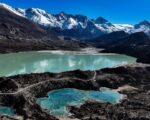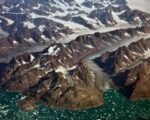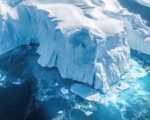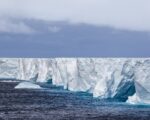A dramatic spike in temperatures at the North Pole has caused concern among climate scientists, as temperatures surpassed freezing for the first time in what is being called an extreme winter warming event. Reports indicate that the region experienced temperatures 20 degrees Celsius above the seasonal average, marking one of the most severe instances of winter warming ever recorded. This event raises significant questions about its impact on Arctic ice loss, as well as the broader implications for global climate trends.
Temperatures at the North Pole were reported to have exceeded 0 degrees Celsius over the weekend, with data from the European Union’s Copernicus Climate Change Service confirming the anomalous warming. An Arctic snow buoy recorded a temperature of 0.5 degrees Celsius, suggesting a substantial deviation from typical winter conditions. Mika Rantanen, a researcher at the Finnish Meteorological Institute, emphasized that while accurately measuring temperature changes in such remote locations is challenging, climate models predict a rise in temperature of more than 20 degrees Celsius from the seasonal average.
The warming event is believed to have been triggered by a low-pressure system over Iceland that funneled warm air toward the Arctic region. This weather pattern was intensified by unusually high sea temperatures in the northeastern Atlantic, which contributed to the warmth. Julien Nicolas, a senior scientist at the Copernicus Climate Change Service, highlighted that while such occurrences are rare, further research is needed to understand how frequent these extreme temperature swings might become as climate change progresses. The recent event serves as a reminder of how interconnected weather systems can affect the Arctic climate, with potentially profound consequences.
Extreme warming events like the one experienced at the North Pole are not entirely new, as a similar phenomenon was observed in December 2016 when temperatures briefly reached 32 degrees Fahrenheit during a winter heatwave. However, the Arctic has been warming at an accelerated rate, nearly four times faster than the global average, a phenomenon known as Arctic amplification. This rapid warming is exacerbated by the loss of reflective sea ice, which increases the absorption of solar energy, further accelerating temperature rises. Indigenous communities and Arctic wildlife, such as polar bears and whales, are particularly vulnerable to these changes, as they disrupt habitats and threaten long-term survival in the region.


















